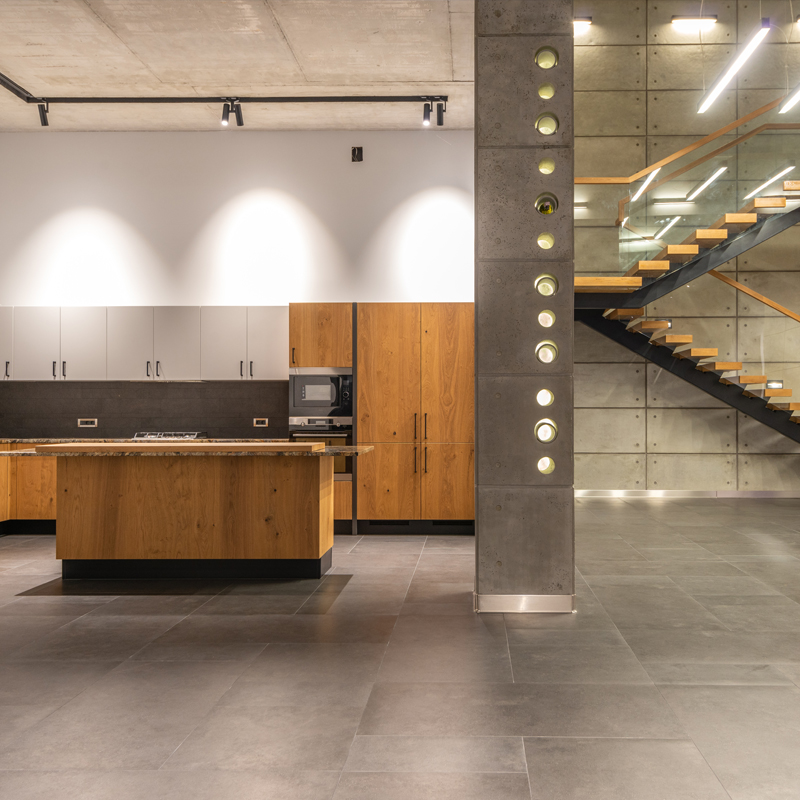Tile Flooring Vancouver
Natural stone and ceramic tile flooring are commonly used in areas such as kitchens, bathrooms, mudrooms, and laundry rooms. These materials are water-resistant, durable, and attractive which makes them excellent choices for high-traffic and high-moisture environments. Despite their similarities, natural stone and ceramic tiles offer distinct benefits. Let’s take a closer look at these flooring materials and some of the unique characteristics offered by each.
Ceramic Tile
Ceramic tile is popular because of its appearance and functional features. Often treated with a glaze that enhances their resistance to damage and stains, ceramic tile is also available in a wide range of patterns and finishes. For example, ceramic tile can be manufactured to appear as many different natural materials including natural stone and wood.
The main types of ceramic tile are glazed, unglazed, and terra cotta. Ceramic tile is fundamentally a clay material, and it is almost always glazed to improve the durability, water-resistance, and stain-resistance of the tile. On the other hand, unglazed tile is more porous and more likely to absorb liquids. Unglazed tile is more susceptible to staining and cracking but offers a unique aesthetic that is not easily achieved with glazed varieties. Unglazed tile may be treated with a sealant to improve water- and stain-resistance. Terra cotta is a sub-type of unglazed tile that is made from a distinct red clay. These tiles usually feature unique patterns and colours.
Natural Stone Tiles
Natural stone refers to granite, limestone, sandstone, and slate. Natural stone tiles are popular because of their aesthetic, but they also offer functional benefits to other flooring types including water-resistance and durability. However, natural stone tile is typically considered less durable than glazed ceramic, but more on that later. First, let’s have a closer look at the main types of natural stone tiles.
Granite is a hard and dense stone that can have different finishes. More porous than glazed ceramic tile, granite flooring should be sealed to prevent damage from moisture or staining. Typically, granite tiles are finished smooth or honed, but they can also be left in their natural state.
Limestone flooring is less dense and durable, and it must also be sealed to improve water- and stain-resistance. Nevertheless, one of the charms of limestone is that its aesthetic changes as it ages. As the limestone becomes more weathered, it evokes images of classical periods.
Sandstone is the most porous of natural stone tiles, so it is not usually recommended for moist or humid environments. It offers a naturally beautiful appearance but requires more maintenance than the other flooring materials discussed. Sandstone is a great choice for a living room or foyer.
Finally, like granite, slate is dense and durable. It is resistant to damage, though is similarly porous to granite. All natural stones should be treated with a sealant to make them more water- and stain-resistant.
Stone versus Ceramic
The choice between stone and ceramic tile usually comes down to considerations of cost, maintenance, and aesthetic. Though ceramic tile can be manufactured to appear like its natural stone countertops,
there will always be some compromise with respect to the texture and feel of the tile. In many cases, the cost of natural stone tiles exceeds the cost of ceramic tile, so for many homeowners, it makes better sense to go with the more durable glazed ceramic. Additionally, glazed ceramic tends to be easier to clean and maintain. It stands up well to all cleaning agents while some cleaners (especially acid-based cleaners) can damage natural stone.
If you’d like more support in choosing between natural stone or ceramic tile, contact our Tile Flooring Vancouver team at Floor Coverings International today.

